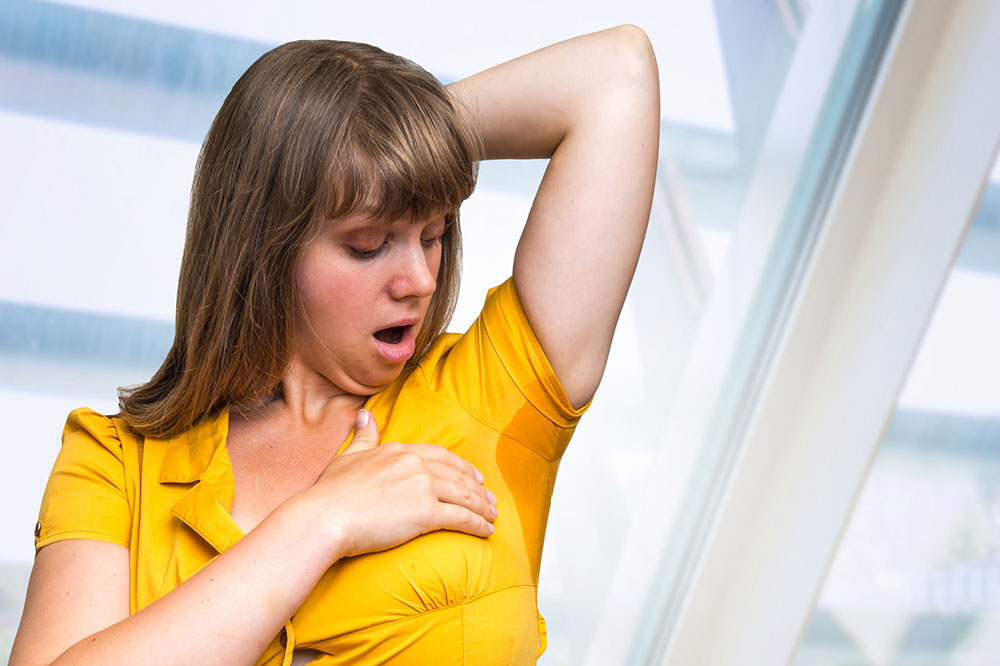
Common Causes Of Hyperhidrosis
You may notice some people sweating profusely to the point that their clothes get drenched with moisture. In Medical Terminology, this condition is known as hyperhidrosis. It is of two types – primary hyperhidrosis and secondary hyperhidrosis. Though the issue is not life-threatening, it can lead to psychological trauma and embarrassment. Let us take a look at the causes of hyperhidrosis to understand the condition.
Causes of Primary Hyperhidrosis
Primary hyperhidrosis is also known as focal hyperhidrosis. It results in excessive perspiration on the face, hands, underarms, and feet. The exact cause of this medical condition is still elusive to scientists. Detailed below are some of the prevalent views regarding the causes of hyperhidrosis of this type.
Emotional Triggers: Earlier, scientists used to believe that the patient’s mental and emotional well-being could play a crucial role in the development of primary hyperhidrosis. They felt that stress, anxiety, or nervousness could act as triggers of this physical discomfort. However, modern researchers refuted this claim. Recent studies point out that primary hyperhidrosis patients are not prone to emotional anxiety. They react to these triggers in the same way as other individuals.
Hereditary Factors: Another line of investigation claims that the genetic constituent of individuals might also play a role in the development of primary hyperhidrosis. If your parents, grandparents, or siblings have hyperhidrosis, then the likelihood of you developing this condition increases significantly. The presence of a specific type of gene leads to this condition.
Eccrine Glands: There is a specific type of sweat glands, called the eccrine glands. These glands are predominantly present on the face, palms, armpits, and feet. The total number of eccrine sweat glands in individuals with hyperhidrosis can be as high as 2-4 million. They are always activated and lead to excessive sweating.
Causes of Secondary Hyperhidrosis
Secondary hyperhidrosis is also known as generalized hyperhidrosis. Unlike primary hyperhidrosis, where perspiration primarily remains confined to the face, palms, armpits, and feet, in secondary hyperhidrosis, individuals sweat profusely all over the body. In most cases, this type of sweating occurs when sleeping. A range of medical factors can act as causes of hyperhidrosis of this type .
Spinal cord injury: Damage to the central nervous system can lead to hemispheric or medullary infarcts and ultimately cause hyperhidrosis.
Diabetes: Diabetics often report night sweats, especially when their blood sugar drops due to the effect of insulin or other medications.
Menopause: Hormonal changes can cause excessive sweating.
Hyperthyroidism: An overactive thyroid gland can trigger hyperhidrosis.
Pregnancy: Many women experience profuse perspiration during their gestation stage.
Lymphoma: Malignancy in the lymphatic glands can cause hyperhidrosis.
Rheumatoid arthritis: Inflammation in the joints can activate the sweat glands, thus leading to hyperhidrosis.



